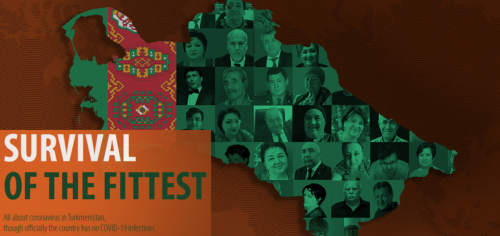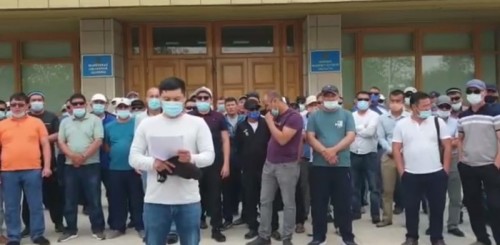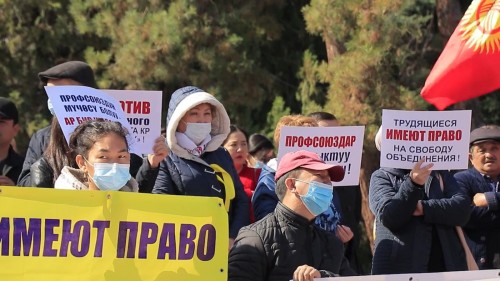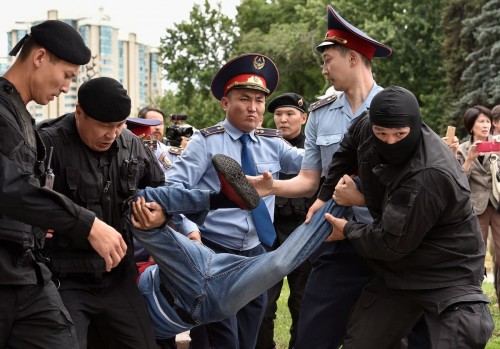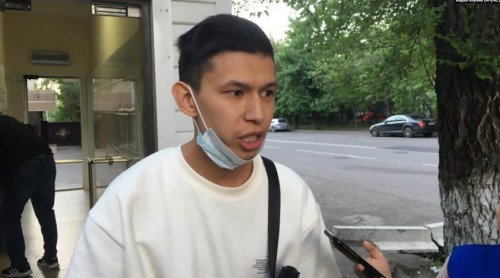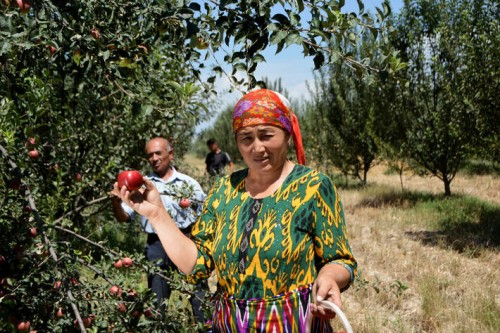Countries
Solidarity campaigns
13 August 2024
Georgia: Support striking workers at Evolution Gaming
5 June 2023
Georgia: Justice for Wolt couriers
10 May 2023
Belarus: Trade union activity is not extremism!
2 November 2019
Kazakhstan: Trade unionist Erlan Baltabay imprisoned - again!
19 November 2018
Kazakhstan: Stop repression and physical attacks on leaders of independent unions; hands off Larisa Kharkova, Erlan Baltabai and Dmitriy Senyavskiy
18 April 2018
MALOKHAT STILL NEEDS YOUR HELP
News
15 July, 2021 / International
WHO Director-General's opening remarks at the 8th meeting of the IHR Emergency Committee on COVID-19 – 14 July 2021
Last week marked the fourth consecutive week of increasing cases of COVID-19 globally, with increases recorded in all but one of WHO’s six regions. And after 10 weeks of declines, deaths are increasing again. The virus continues to evolve, resulting in more transmissible variants.
13 July, 2021 / kyrgyzstan
URGENT APPEAL TO THE PRESIDENT OF THE KR MR. JAPAROV S.N.
Bir Duino and partners propose to conduct a joint National Dialogue-Forum for Partnership for the Development of the Kyrgyz Republic in autumn of 2021 to prevent risks, conflicts and disasters, promote gender equality and gender justice, and support reforms to build the rule of law without discrimination and violence in the future. We look forward to equal dialogues, partnership discussions and joint programs to strengthen civil society without discrimination and violence. We believe that the President will revise all bills adopted by the illegitimate parliament of the Kyrgyz Republic, we currently work on development of strategies of litigation with the parliament of the KR to restore the rights and freedoms of citizens in Kyrgyzstan, as the right of citizens to freedom of association and assembly is the basis for successful development of the country, ensuring security and increasing development opportunities and citizen participation in government. People are primary, power is secondary.
22 June, 2021 / turkmenistan
“Survival of the Fittest.” Turkmen.news Presents Independent Report on Coronavirus in Turkmenistan
For more than a year now Turkmenistan’s government has declared the country free of coronavirus. They feed this story not only to their own people, who are already used to the authorities covering up problems and openly lying, but also to the entire international community – the UN, including the WHO, and foreign governments. The Turkmen government is essentially disregarding its own people and their health, and by lying to the international community and presenting inaccurate epidemiological data, it is putting the health of the whole world at risk.
08 June, 2021 / kazakhstan
Repressions Against Independent Unions in Kazakhstan Continue
Last week, on June 02, 2021, a meeting took place between representatives of the Oil Construction Company Workers’ Union affiliated to the Sectoral Fuel and Energy Workers’ Union with the management of the JSC “National Company “KazMunaiGas”. During the meeting the Union raised the issue of the refusal of the management of a subsidiary of “KazMunaiGas” to comply with the existing CBA, as well as a number of other issues.
01 June, 2021 / kyrgyzstan
Kyrgyzstan: controversial trade union law vetoed
The law on trade unions that would seriously undermine freedom of association in Kyrgyzstan and deprive unions of their independence was vetoed by the President on 27 May.
01 June, 2021 / International
Cotton campaign page summary on Turkmenistan
Comments Concerning the Ranking of Turkmenistan by the United States Department of State in the 2020 Trafficking in Persons ReportFebruary 2020 | by the International Labor Rights Forum on behalf of the Cotton Campaign
25 May, 2021 / kazakhstan
Kazakhstan: over 2,000 citizens have been illegally detained over the past 6 years
The pre-trial investigation authorities don’t pay due attention to the issues of proving the guilt of the suspect before bringing him/her to justice. As a result of this negligence, more than two thousand citizens have been illegally detained over the past six years. Such a verdict is contained in the Concept to the draft “On amendments and additions to certain legislative acts of the Republic of Kazakhstan concerning the implementation of a three-tier model with delineation of powers and areas of responsibility between law enforcement agencies, the Prosecutor’s Office and the Court”, which was presented by the General Prosecutor’s Office of the republic.
20 May, 2021 / kazakhstan
Authorities in Kazakhstan Can’t Take a Joke
Temirlan Ensebek, a 25-year-old from Almaty, Kazakhstan, is under criminal investigation on charges of “disseminating knowingly false information” in connection with the satirical Instagram account Qaznews24, which he ran for a few weeks in April. If convicted, he faces up to three years in prison. On May 15, police detained Ensebek for questioning, carried out a search of his home, and confiscated two mobile phones and a laptop. After several hours of questioning, Ensebek was released. His lawyer, Zhanara Balgabaeva, told Human Rights Watch that she and Ensebek had to sign nondisclosure agreements.
17 May, 2021 / International
New FAO-led food security and nutrition report for Europe and Central Asia elaborates on the costs of a healthy diet
Affordable healthy diets can trigger positive development in nutrition, sustainability.
29 April, 2021 / International

